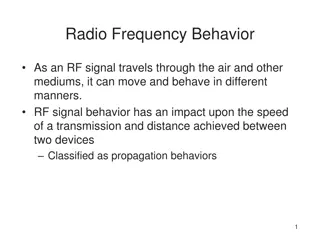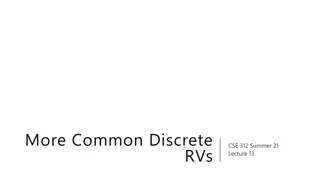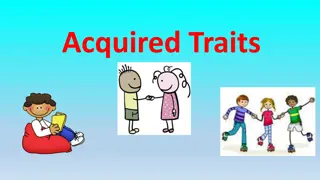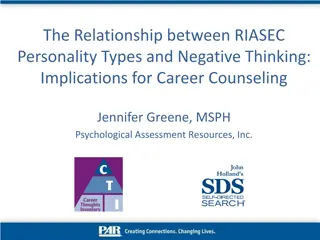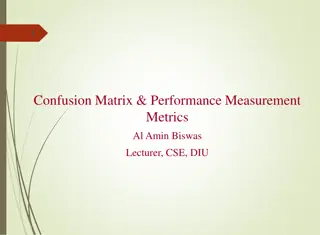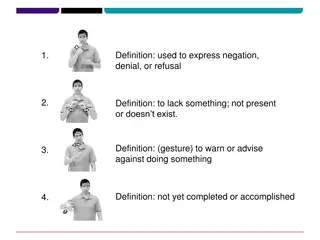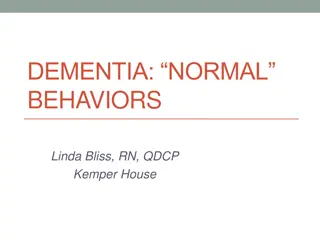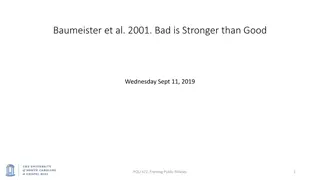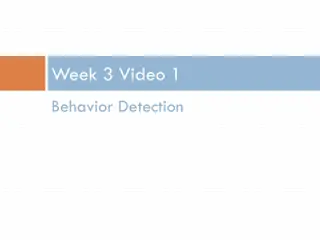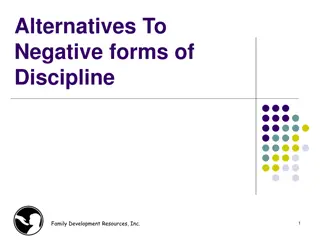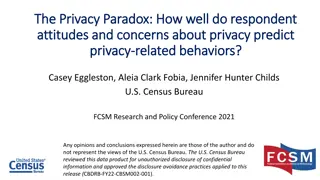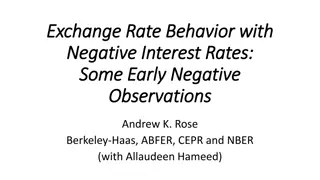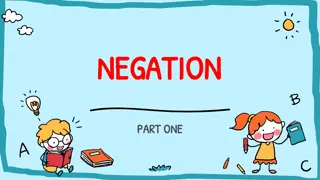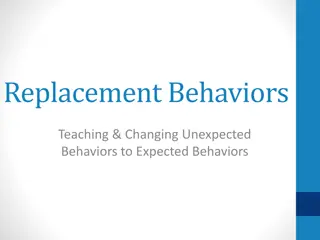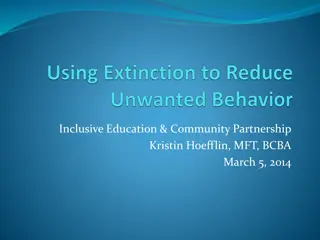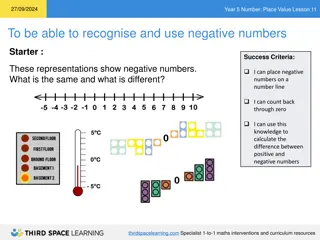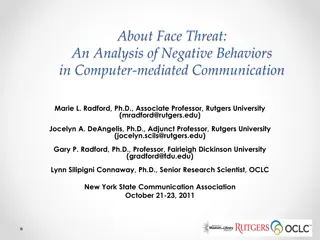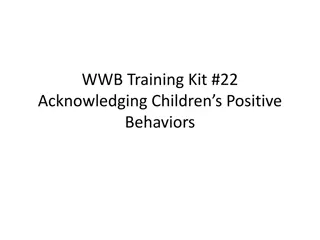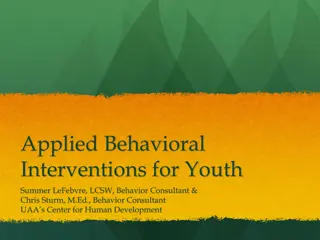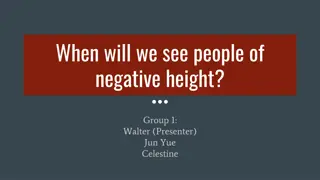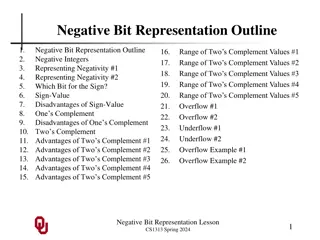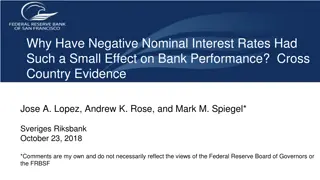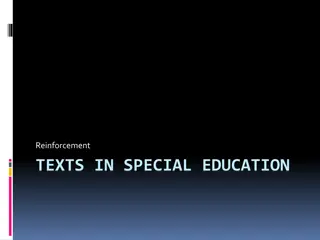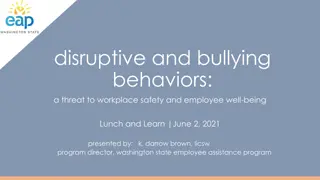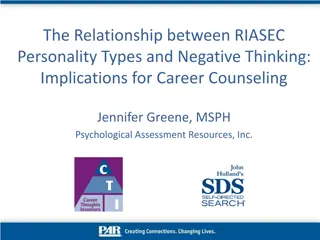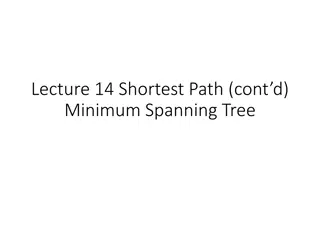Buy Negative Google Reviews
Buy Negative Google Reviews\nWith the advancement of technology, businesses are now becoming online-dependent. Google has now become an unbreakable platform for any online business. If you have a business site on Google, Google Reviews on that site are very important for the growth of your interacti
1 views • 16 slides
RATIONAL NUMBER ARITHMETIC. Day 1: Interpreting Negative Numbers
Explore the concept of negative numbers through practical scenarios such as temperature readings and elevation differences. Learn how to compare rational numbers and describe measurements in relation to sea level, all while engaging in group activities and exercises. Enhance your understanding of ne
1 views • 8 slides
Buy Negative Google Reviews
Buy Negative Google Reviews\nBuy Negative Google Review USA\nWith the advancement of technology, businesses are now becoming online-dependent. Google has now become an unbreakable platform for any online business. \nContact us now for more service details 24\/7-hours contact\nEmail: contact.usarevie
4 views • 11 slides
Understanding Radio Frequency Behavior and Propagation Behaviors
Radio frequency signals exhibit various behaviors as they travel through different mediums, affecting transmission speed and distance between devices. Propagation behaviors include absorption, reflection, scattering, refraction, and diffraction, impacting wireless network performance. Understanding
2 views • 32 slides
Understanding Negative Binomial Distribution in Probability Theory
Exploring the Negative Binomial Distribution in probability theory can help us analyze scenarios where multiple trials are needed to achieve a certain number of successes. This distribution provides insights into situations like playing carnival games or conducting independent trials with varying su
0 views • 39 slides
Understanding Acquired Traits and Learned Behaviors in Living Organisms
Acquired traits are physical characteristics acquired during a living thing's lifetime, such as scars, and are not passed down from parents. Many acquired traits are also learned behaviors, like reading or flying, which animals develop after birth. Learned behaviors, unlike inherited instincts, are
5 views • 15 slides
The Relationship between RIASEC Personality Types and Negative Thinking: Insights for Career Counseling
Explore the connection between RIASEC personality types and negative career thoughts, utilizing measures like the Self-Directed Search and Career Thoughts Inventory. The study delves into the impact of various personality types on endorsing negative career thoughts, offering implications for effecti
0 views • 24 slides
Understanding Confusion Matrix and Performance Measurement Metrics
Explore the concept of confusion matrix, a crucial tool in evaluating the performance of classifiers. Learn about True Positive, False Negative, False Positive, and True Negative classifications. Dive into performance evaluation metrics like Accuracy, True Positive Rate, False Positive Rate, False N
3 views • 13 slides
Understanding Negative Sentences: Translations and Examples
In linguistics, negative sentences express negation, denial, or refusal. This article provides definitions and examples of negative sentences along with guidelines on establishing time, location, and topics in translations. Explore how negation is used to indicate the absence or prohibition of somet
0 views • 8 slides
Understanding Normal Behaviors in Dementia Care
Dementia presents a range of normal behaviors that can be challenging for caregivers. By learning to identify triggers, interpret communication, and respond effectively, caregivers can provide better support for individuals with dementia. This session explores common behaviors like aggression, wande
0 views • 29 slides
Strategies to Address Pollution and Negative Externalities
Exploring the concept of negative externalities, the text discusses how markets interact to allocate resources and the ethical considerations involved in balancing economic activities with pollution reduction. It presents three effective ways to mitigate negative externalities, such as command and c
0 views • 24 slides
The Power of Negative Influence: Bad is Stronger than Good
Understanding human irrationality and the tendency to focus more on negative experiences can influence decision-making and behavior. Negative campaign ads, the impact of winning and losing, and the concept that bad experiences carry more weight than good ones all highlight how cognitive bias plays a
0 views • 14 slides
Understanding Behavior Detection Models in Educational Settings
Explore how behavior detectors automatically infer student behaviors from interaction logs, such as disengaged behaviors like Gaming the System and Off-Task Behavior, as well as Self-Regulated Learning (SRL) behaviors like Help Avoidance and Persistence. Discover the goal of identifying these behavi
0 views • 18 slides
Understanding Positive Discipline Techniques for Effective Parenting
Children have the right to a nurturing environment free from violence and shame. Negative discipline methods like spanking and yelling can have long-lasting negative impacts on a child's development. By understanding the reasons behind negative discipline practices and exploring alternative positive
1 views • 15 slides
Understanding the Privacy Paradox: Attitudes vs. Behaviors
Social scientists have identified a Privacy Paradox where individuals with strong privacy concerns may not always engage in behaviors that protect their privacy. While some studies show a discrepancy between attitudes and behaviors, others suggest that privacy-concerned individuals do employ privacy
0 views • 14 slides
Understanding Exchange Rate Behavior with Negative Interest Rates: Early Observations by Andrew K. Rose
In this study, Andrew K. Rose examines the exchange rate behavior in economies with negative nominal interest rates, focusing on the impact and implications of such rates on exchange rates. The findings suggest limited observable consequences on exchange rate behavior, with similarities in shocks dr
0 views • 42 slides
Understanding Negation in Grammar: Definition, Formation, and Examples
Explore the concept of negation in grammar through definitions, forming negative sentences, and examples. Learn about using auxiliary verbs, prefixes, and suffixes to create negative statements. Examine negative verb forms in present simple and past tenses. Enhance your understanding with practical
0 views • 11 slides
Understanding Replacement Behaviors in Behavioral Interventions
Dive into the concept of replacement behaviors in behavior modification strategies. Learn how to identify, teach, and implement expected behaviors to replace unwanted actions. Discover the role of the Child Study Team in developing action plans, prioritizing behaviors, and evaluating progress. Explo
0 views • 30 slides
Exploring John Keats's Negative Capability Theory in "Ode on a Grecian Urn
John Keats, known for his melancholic temperament, delved into the concept of Negative Capability in his poetry, particularly evident in "Ode on a Grecian Urn." This theory emphasizes the poet's ability to transcend rationality and immerse in intense emotions without the need for analysis or judgmen
0 views • 29 slides
An Overview of Debate: Propositions, Teams, and Formats
Debate is a regulated discussion between two matched sides discussing a proposition, with the affirmative arguing for change and the negative defending the status quo. The standard debate format involves constructive arguments followed by rebuttals from both sides. The roles in a debate include the
0 views • 47 slides
Understanding Behavior Establishment and Extinction in Inclusive Education
Behavior establishment and extinction are crucial concepts in the field of inclusive education. Behaviors are reinforced based on antecedents and consequences, with extinction occurring when reinforcement is discontinued. Different types of extinction target behaviors maintained by positive or negat
0 views • 25 slides
Indiana High School Survey 2015 Youth Risk Behavior Results
The Indiana High School Survey 2015 provides valuable insights into the risk behaviors of high school students in Indiana. The survey results reveal concerning percentages of students who engage in behaviors such as not wearing seat belts, riding with drivers who have consumed alcohol, carrying weap
0 views • 4 slides
Guide to Giving Negative Commands in Spanish
Learn how to effectively communicate what not to do in Spanish with negative commands. Understand the different forms of negative commands for -AR, -ER/-IR verbs, irregular verbs, direct object pronouns, stem-changing verbs, and verb forms ending in -CAR, -GAR, -ZAR. Master the rules and exceptions
0 views • 12 slides
Understanding Negative -T Commands in Spanish
Negative -T commands in Spanish are used to tell someone what not to do. These commands are often directed at friends or familiar individuals. Forming negative -T commands involves starting with the YO form in the present tense, dropping the O for -ER/-IR verbs, adding -ES for -AR verbs, and includi
0 views • 50 slides
Exploring Negative Numbers in Year 5 Mathematics Lesson
In this Year 5 mathematics lesson on negative numbers, students learn to recognize and use negative numbers through various activities such as placing them on a number line, counting back through zero, and calculating the differences between positive and negative numbers. The lesson also prompts stu
0 views • 23 slides
Analysis of Negative Behaviors in Computer-mediated Communication
This analysis delves into negative behaviors in computer-mediated communication, exploring threats to face value and interactions in virtual reference encounters. It discusses the concept of face-work, the importance of maintaining positive social value, and the impact of face threats on individuals
0 views • 14 slides
Understanding Positive Behavior Acknowledgment in Children
Acknowledging children's positive behaviors is crucial for reinforcing desired behavior patterns. Positive responses help in promoting positive interactions, following instructions, proper communication, and independent self-care skills. It is important to recognize and praise positive behaviors to
0 views • 11 slides
Understanding Applied Behavior Analysis (ABA) for Youth Interventions
Applied Behavior Analysis (ABA) is a science focusing on improving human behavior by increasing desired behaviors, teaching new skills, and generalizing behaviors. ABA emphasizes observable behaviors, measurement of behavior change, and the use of interventions in various settings like classrooms an
0 views • 25 slides
Exploring the Possibility of People with Negative Height
This article delves into the theoretical concept of people with negative height, discussing the probabilities based on normal distribution models and empirical rules. It explores the likelihood of encountering individuals with negative height in today's population, throughout history, and the number
0 views • 10 slides
Outcome of AEG Consultation on Treatment of Negative Interest Rates by Real Sector Division IMF Statistics Department
A detailed analysis of the outcome of the AEG consultation on the treatment of negative interest rates by the Real Sector Division IMF Statistics Department. The summary includes members' agreement with the proposed treatment, the closure of the consultation, feedback received, and the need for furt
0 views • 5 slides
Understanding Negative Bit Representation in Computer Science
Dive into the world of negative bit representation in computer science, exploring the need for representing negativity in integers, methods like Two's Complement, disadvantages of Sign-Value and One's Complement, range of Two's Complement values, overflow, underflow, and more. Discover the significa
0 views • 26 slides
Non-Negative Tensor Factorization with RESCAL
This article discusses non-negative tensor factorization with RESCAL, covering topics such as Non-Negative Matrix Factorization, Multiplicative Updates, RESCAL for Relational Learning, and Non-Negative Constraint for RESCAL. It explores how factorizing matrices/tensors into non-negative factors can
0 views • 11 slides
Impact of Negative Nominal Interest Rates on Bank Performance: Cross-Country Insights
Examining the effects of negative nominal interest rates on bank performance reveals challenges in maintaining profitability, with concerns around reduced interest rate margins and disruptions to monetary transmission mechanisms. Empirical evidence suggests a reluctance among banks to impose negativ
0 views • 43 slides
Understanding Positive and Negative Reinforcement in Special Education
Positive reinforcement involves rewarding good behavior in children, such as praise or rewards, while negative reinforcement motivates change by removing something unpleasant. Positive reinforcement is usually more effective and includes examples like praising a child for putting away dishes or rewa
1 views • 5 slides
Impact of Negative Nominal Interest Rates on Bank Performance
Negative nominal interest rates, implemented following the financial crisis, have had a limited effect on bank performance globally. While low rates reduce profitability, banks have shown resilience through adjustments in funding allocations and non-interest income sources. Studies suggest that resp
0 views • 34 slides
School Food Service Update and Financial Overview
Within the School Food Service update, information is provided on negative account balances, personal parent notifications, and payment options available to parents. The data includes details on total negative balances, number of families contacted, and payment methods. Challenges with negative bala
0 views • 5 slides
Understanding Brand Hate: A Review and Agenda
Exploring the concept of brand hate as a complex emotion, this systematic literature review delves into the significance of negative emotions, particularly hate, in shaping consumer behaviors. The research highlights the scarcity of studies focusing on negative brand relationships like brand hate, o
0 views • 18 slides
Workplace Safety and Well-being Lunch and Learn Event Overview
This Lunch and Learn event held on June 2, 2021, addressed disruptive and bullying behaviors as threats to workplace safety and employee well-being. Key topics included identifying, addressing, and discussing such behaviors, along with statistics on civility in the workplace and challenges faced due
0 views • 26 slides
Exploring the Relationship Between RIASEC Personality Types and Negative Career Thoughts
This presentation delves into the correlation between RIASEC personality types and negative career thoughts, with a focus on the implications for career counseling. The research objective, hypotheses, measures used, methods, participants, results, and a case study are discussed in detail. The Self-D
0 views • 24 slides
Bellman-Ford Algorithm: Shortest Path with Negative Edge Length
The Bellman-Ford algorithm addresses the challenge of finding the shortest path in graphs with negative edge lengths, particularly useful in scenarios such as arbitrage in currency exchange rates. By utilizing dynamic programming and steps iteration, the algorithm efficiently detects negative cycles
2 views • 16 slides



